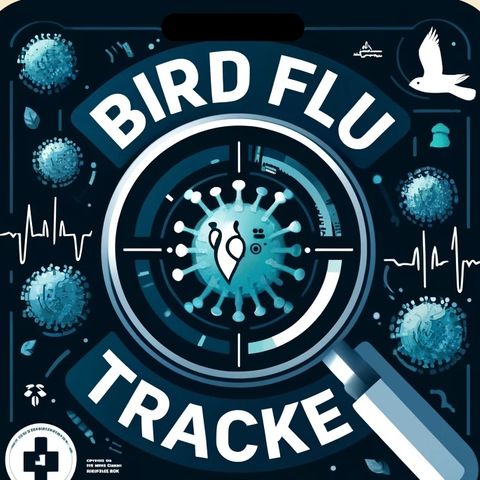Bird Flu update for 09-27-2024

Download and listen anywhere
Download your favorite episodes and enjoy them, wherever you are! Sign up or log in now to access offline listening.
Bird Flu update for 09-27-2024
This is an automatically generated transcript. Please note that complete accuracy is not guaranteed.
Description
In an unconventional turn of events, Michigan has launched an aggressive attack against avian influenza, a virus that typically impacts birds but has recently been identified in dairy cattle—an occurrence...
show moreThe discovery of avian influenza in dairy cattle marks a rare zoonotic anomaly, eliciting a broad spectrum of concerns regarding its implications for agricultural practices and public health. Typically confined to bird species, avian influenza poses significant risks when transferred to mammals, which may act as carriers of potentially new, mutated viruses. Michigan's Department of Agriculture and Rural Development, aided by insights from epidemiologists and livestock health experts, rolled out stringent biosecurity measures aimed at curtailing the spread of the virus.
The state's strategy includes rigorous health monitoring of livestock, compulsory vaccination programs where applicable, and strict quarantine protocols for affected farms. Biosecurity, a major focal point of the plan, involves managing farm visitors' access, sanitizing farm equipment, and regulating the movement of animals within and across states to prevent further outbreak.
Highlighting the response, a key official from the agriculture department emphasized the importance of early detection and rapid response systems in managing such unusual cases. The multipronged approach also leverages technology for better surveillance and predictive analysis, aiding in quicker containment measures.
The industries most at risk, especially the dairy and larger livestock sectors, face a precarious situation as they balance maintaining herd health with continuous production. The ramifications of an avian flu outbreak in dairy cattle have both economic and health-related stakes. Economically, the threat to Michigan's dairy industry, a major sector of its agricultural output, looms large. Healthwise, while avian flu in cattle has not yet been linked to human transmissions in this instance, the mere possibility presents a grave concern to public health officials.
Further complicating the state's containment efforts are the challenges brought about by climate change and wildlife interactions, which are thought to contribute to the increased risk and altered behavior of infectious diseases like avian influenza.
In tandem, research initiatives have escalated, focusing on understanding the transmission dynamics of the virus between birds and mammals and potentially developing cattle-specific vaccines if the threat persists. Collaboration at federal, state, and local levels is being continuously adjusted according to the unfolding situation to prevent a severe blowout that could reach beyond state borders.
Michigan's bold steps reflect a proactive approach in handling what could possibly evolve into a significant threat, emphasizing the importance of readiness and adaptability in managing animal health emergencies in today's interconnected and environmentally challenged world. As the situation develops, ongoing updates from state health and agricultural leadership will be crucial in directing the future course of this unusual health challenge.
Information
| Author | QP-3 |
| Organization | William Corbin |
| Website | - |
| Tags |
Copyright 2024 - Spreaker Inc. an iHeartMedia Company
